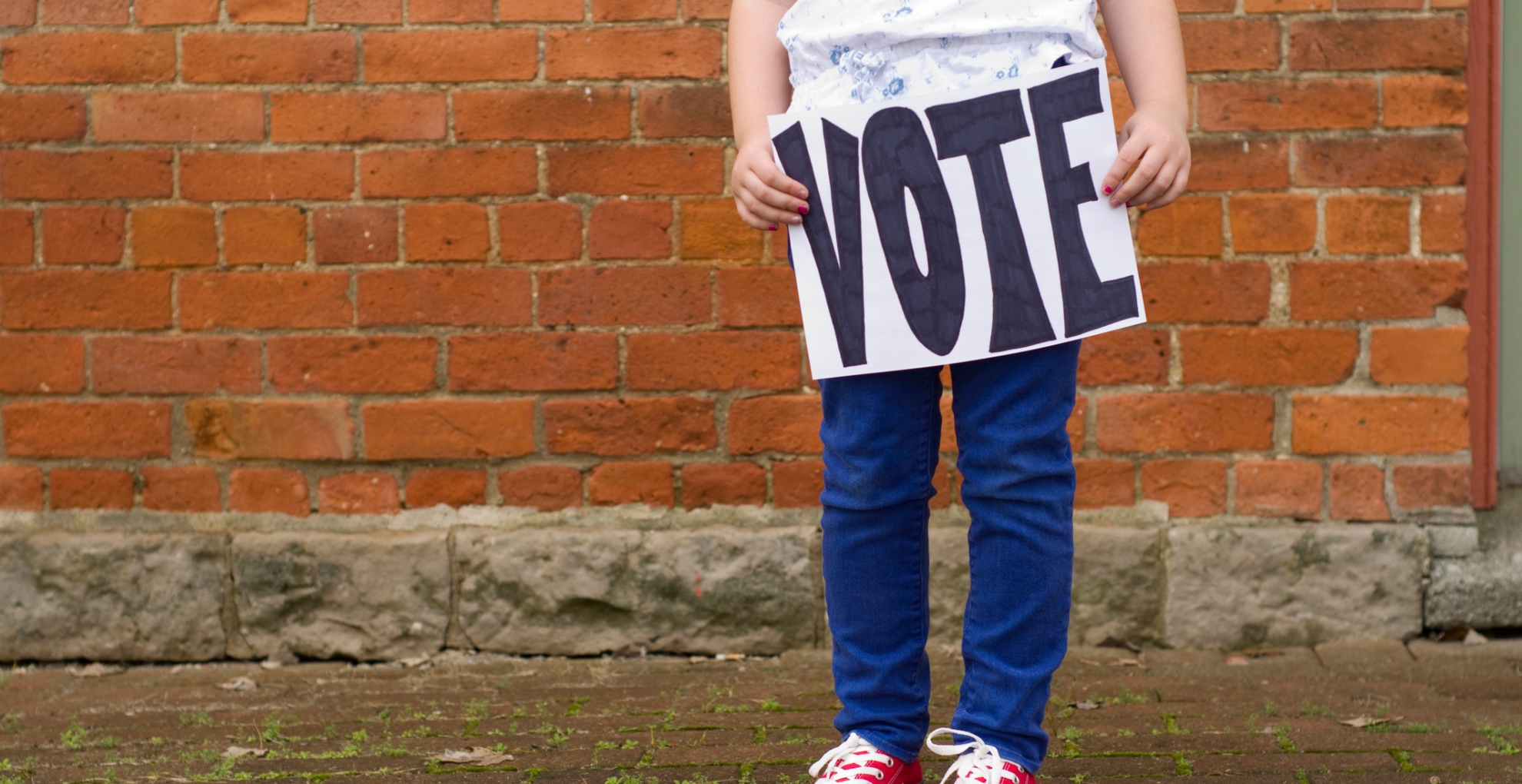
We are just weeks away from the 2024 US presidential election, and there is a lot of information to digest. This can be overwhelming for adults, so just imagine how a child might feel. Our kids hear and see many different things, and as parents, it is up to us to ensure we inform them with appropriate information and that they understand reality vs. what they might be interpreting on their own.
Our kids need to feel comfortable talking with us about anything, even if we don’t necessarily share the same views. The organization Global Refuge gave CafeMom some essential tips for parents about how to talk to kids about politics in an age-appropriate and helpful way, and we’re passing them along here.
More from CafeMom: 15 Things Most People Don’t Know About Voting
Share Your Views
Global Refuge tells CafeMom that sharing how we feel about candidates and issues is important. It is essential that our kids understand why we support our candidate and causes. It is easy to become passionate about politics, but keeping an open mind is essential. The say we can share our beliefs “without bashing the other candidate.”
Ask Your Child Their Thoughts
It might take some getting used to, but Global Refuge warns parents not to “get frustrated if they do not share your political views.” Even young children can think critically and form opinions on big issues on their own. Kids can’t vote yet, but they are old enough to have feelings. Kids need reassurance their thoughts and opinions are valid.
Respect Other People's Ideas & Agree To Disagree
This tip would be helpful not only for kids but also for adults. Because schools often incorporate political discussions and even mock elections into lessons, Global Refuge urges parents to teach their children the best course of action when conflict arises and that it’s OK to be different.
“Encourage your children to be active participants in these conversations and activities but remind them to be respectful of other people’s views. It is OK to agree to disagree,” the group notes. “Also, remind them that it is not their job to change someone else’s opinion. Their goal is to learn how to respectfully articulate and stand up for their own opinion.”
Teach Them To Avoid Hysteria and Fear Mongering
Political conversations sometimes become heated and can spread misinformation. Using words that define an entire group or as absolutes might cause confusion. Global Refuge says it’s OK to explain to kids that sometimes politicians use these tactics to scare voters.
“Explain how using words like ‘all,’ ‘they,’ or ‘them’ to label an entire group with the same characteristics can lead to harmful stereotypes. Let them know that every election cycle, phrases like ‘We are doomed’ or ‘This is the end of our nation’ are just fear tactics used to stir up emotions from voters,” Global Refuge adds.
More from CafeMom: A Millennial Mom Taught Her Kids Battle Rap To Solve Conflict & It’s Perfection
Help Them Understand How Democracy Works
Global Refuge says that we are our children’s first teachers, and it’s our responsibility to ensure they receive accurate information. This may mean brushing up on our knowledge of how government works. Ultimately, it’s a win/win for kids and parents.
“Have an age-appropriate conversation and make sure they understand how our branches of government, elections, and democracy work. Find out how and if elections are discussed in class and ask if your child has any thoughts or questions about what they are learning. Lastly, for hands-on experience, bring them along to the polls or let them review a mail-in ballot,” the organization suggests.




